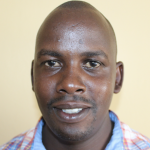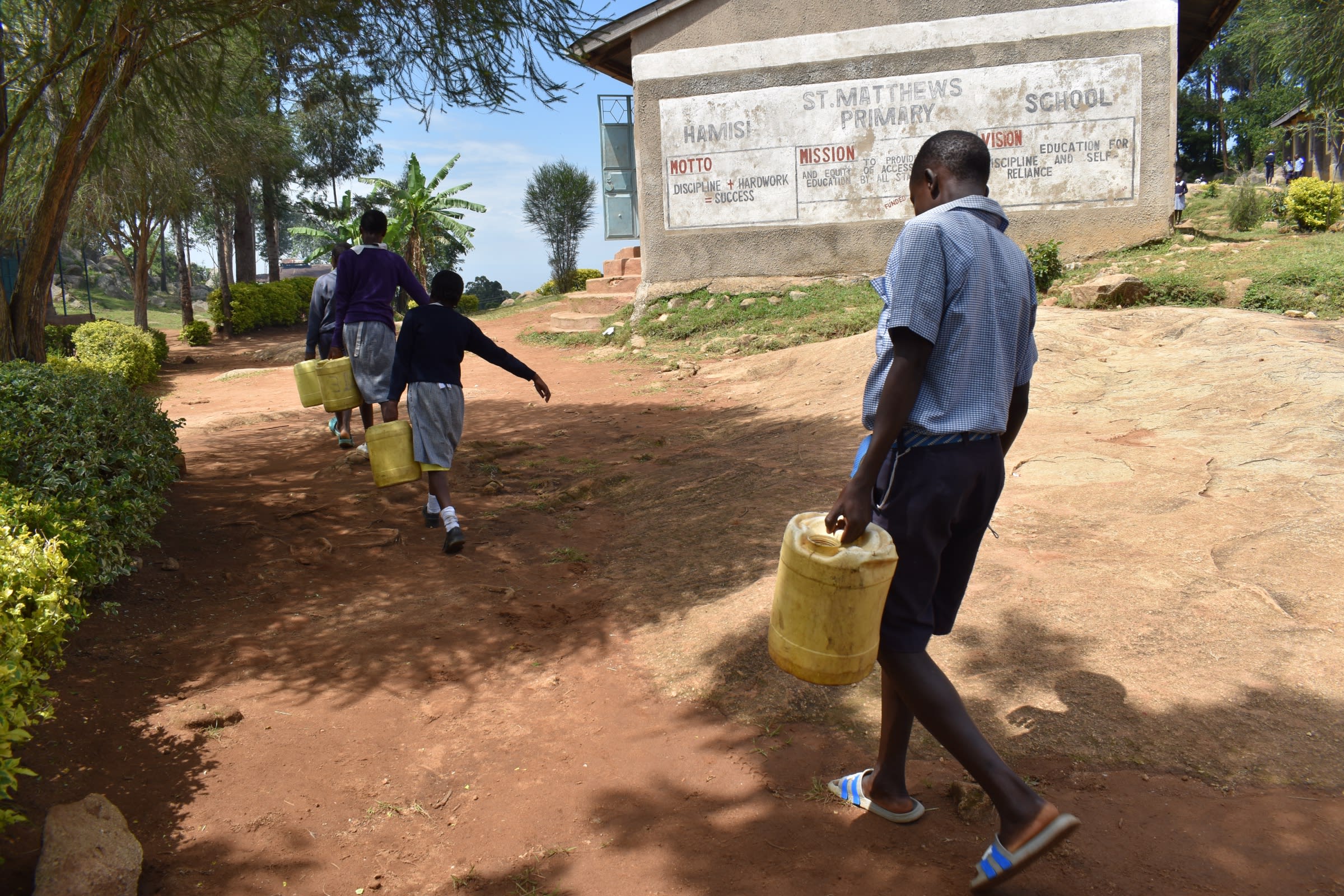When it doesn't rain at St. Matthew's Hamisi Primary School, the 463 students and 15 staff members don't have water. This is a major problem for a school in a region that only experiences rain for half of the year.
The school has two smaller rain tanks (30,000-liters each), but only one functions properly and it simply is not enough to meet the demand. Students have been forced to carry water with them to school every day once the rain tank empties (which it does quickly after the rains stop). Yet, even when every student brings a heavy jug full of water to school with them, there is never enough for cooking, cleaning, or washing utensils, let alone drinking.
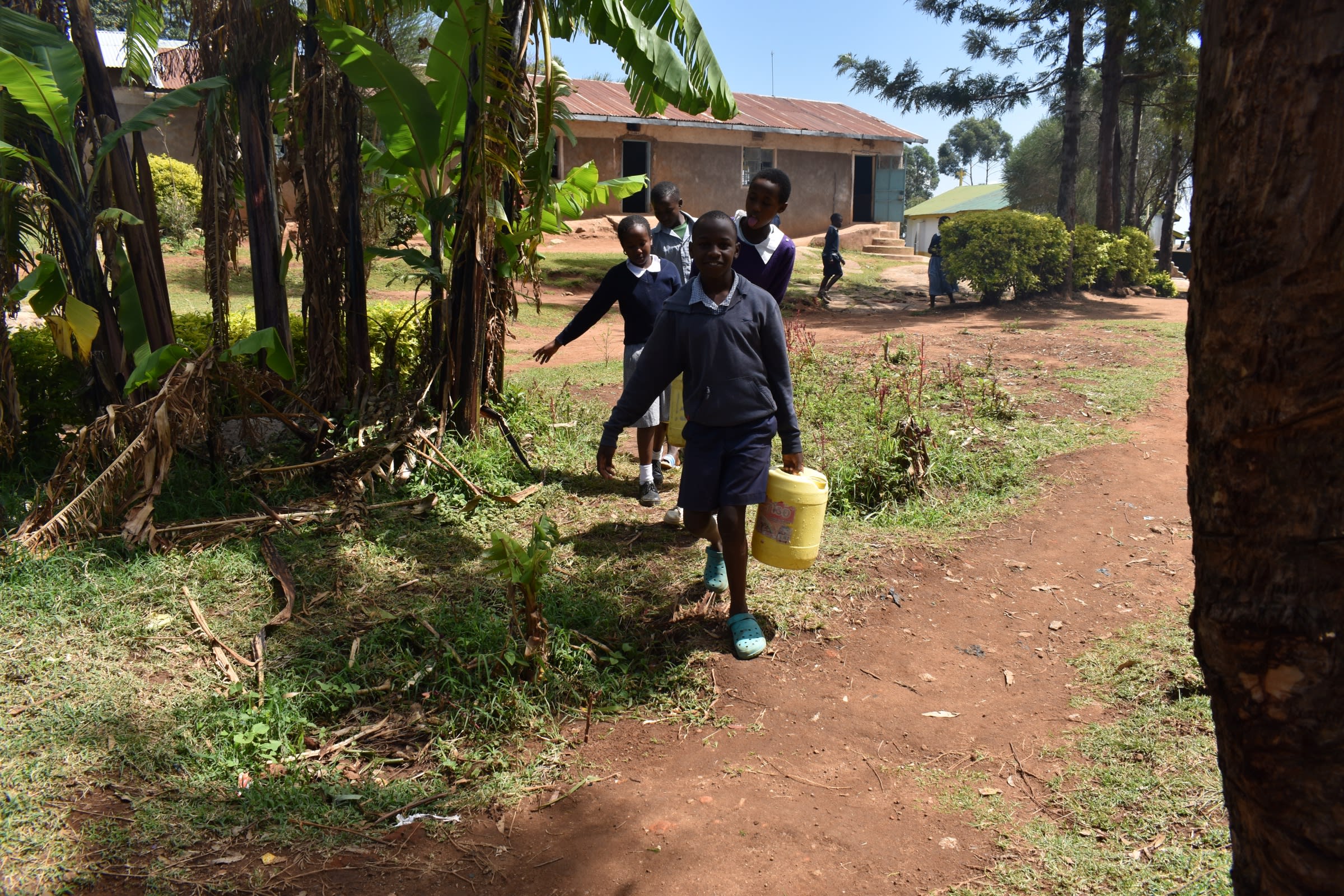
The functioning rain tank does work, but when we asked the school administration when the inside of the tank was last cleaned or chlorinated, no one knew. This, coupled with the fact that learners bring water from dubious sources along their daily routes, has led to high instances of water-related illness among teachers and students alike. The most common complaint is typhoid, though coughing, stomachaches, and headaches have also been blamed on drinking contaminated water.
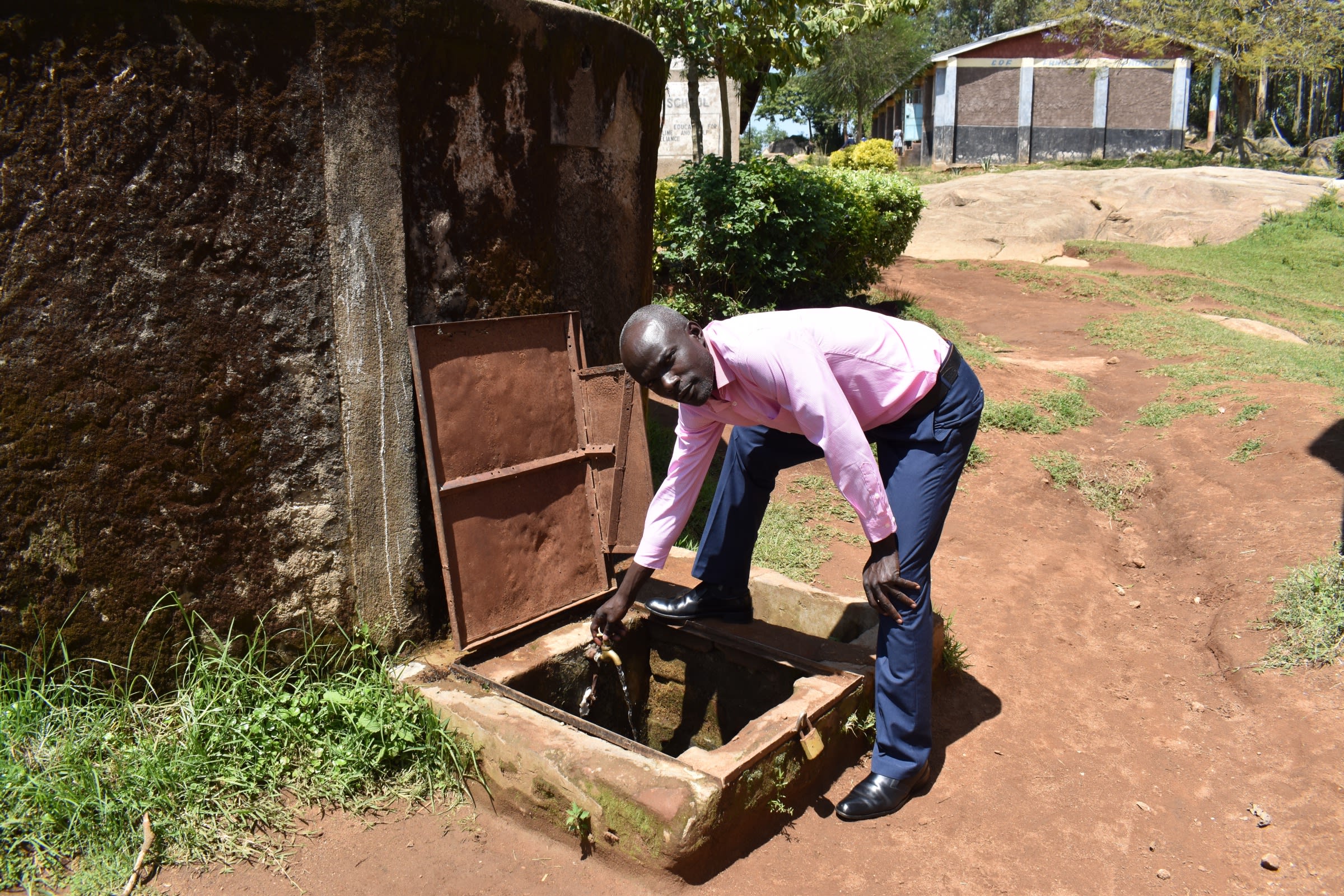
"[At] the moment, we use water carried by pupils from their homes," explained Denis Ouma, the school's Head Teacher (pictured above). "We then experience health problems like coughing and even stomachache because children, when told to come with water, fetch water from any water point so long as it is called water, without minding water safety."
With all the issues around water, students' morale is perilously low, with high levels of absenteeism due to illnesses and the fact that students have come to see fetching water before school and during class time as a punishment.
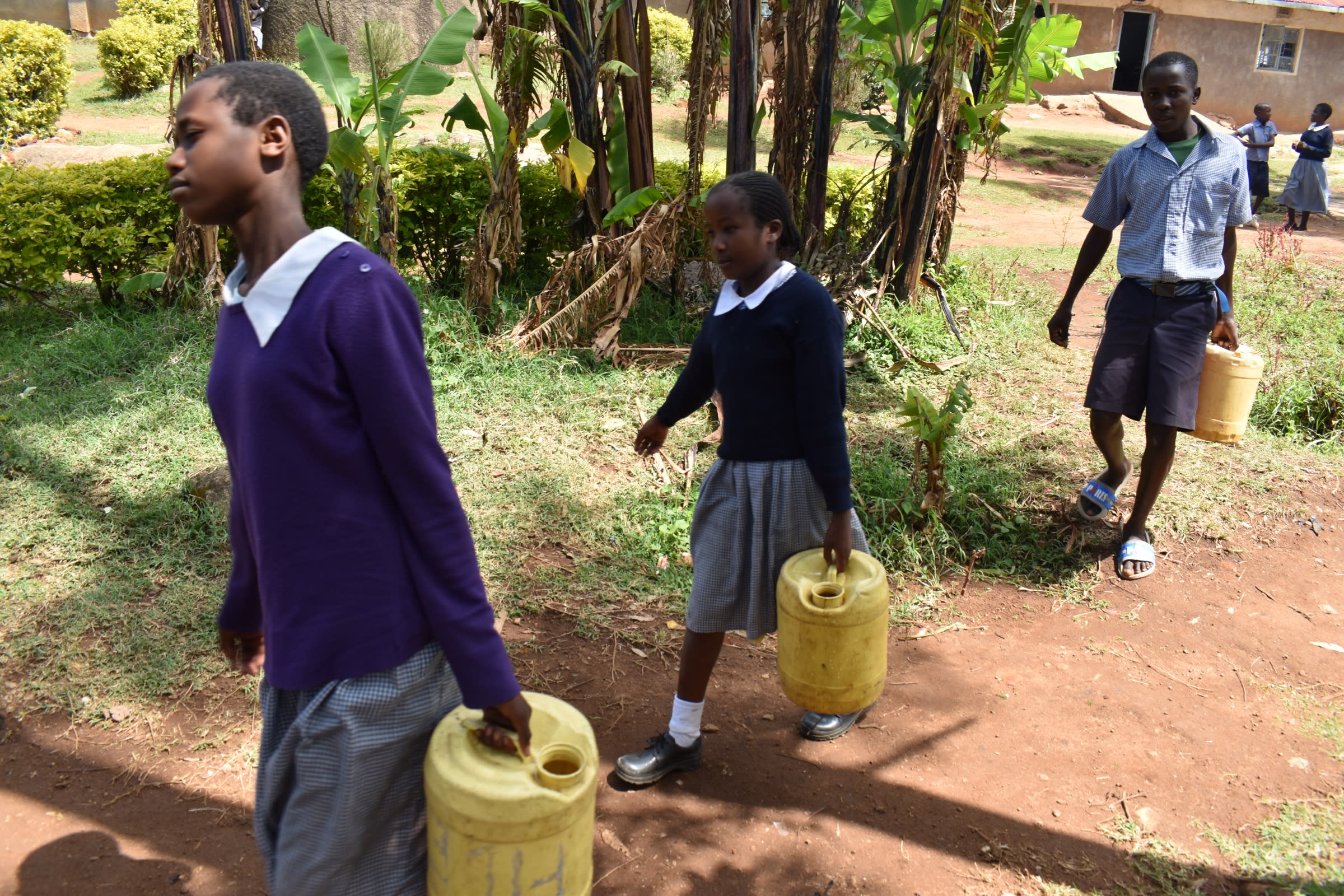
"For me, I have to wake up early in the morning to go and fetch water to carry it to school at the protected spring or at times fetched it on a shallow well in our neighbor's home," said 10-year-old Velma. "During those morning hours, it is so cold, hectic, and tiresome to carry water to the school each morning."
A new source of water will boost students' health as well as their spirits. Along with feeling better, they will have more time and energy to devote to their studies. Hopefully, without the dreaded chore of lugging water along to school each morning, learners will once again come to view school as a place of opportunity and fun.
What We Can Do:
Two Rain Tanks
Two 75,000-liter rainwater catchment tanks will help alleviate the water crisis at this school. The school will help collect the needed construction materials such as sand, bricks, rocks, and water for mixing cement. We will complement their materials by providing an expert team of artisans, tools, hardware, and the guttering system. Once finished, these tanks will begin catching rainfall that will be used by the school's students and staff for drinking, handwashing, cooking, cleaning, and much more.
We and the school strongly believe that all of these components will work together to improve standards at this school, which will lead to better student academic performance and help to unlock the potential for these students to live better, healthier lives.
Handwashing Stations
The student health club will oversee the two new handwashing stations we will provide, and make sure they are kept clean and in working condition. The club leaders will fill the handwashing stations with water daily and make sure they are always supplied with a cleaning agent such as soap or ash.
VIP Latrines
Two triple-door latrine blocks will be constructed with local materials that the school will help gather—one block for girls and one for boys. All of these new latrines will have cement floors that are designed to be easy to use and clean. And with two rain tanks right on school property, there should be enough water to keep them clean.
Training on Health, Hygiene, COVID-19, and More
We will hold a one-day intensive training session with students and teachers. This training will cover a wide range of topics including: COVID-19 symptoms, transmission routes, and prevention; personal and environmental hygiene; and the operation and maintenance of the rain tanks, latrines, and handwashing stations. There will be a special emphasis on handwashing.
Our team of facilitators will use a variety of methods to train, including participatory hygiene and sanitation transformation, and asset-based community development. We will initiate a student health club, which will prepare students to lead other pupils into healthy habits at school and at home. We will also lead lectures, group discussions, and provide illustrative handouts to teach health topics and ways to promote good hygiene practices within the school, like handwashing and water treatment. We will then conduct a series of follow-up trainings before transitioning to our regularly scheduled support visits throughout the year.

 Rainwater Catchment
Rainwater Catchment
 Rehabilitation Project
Rehabilitation Project











